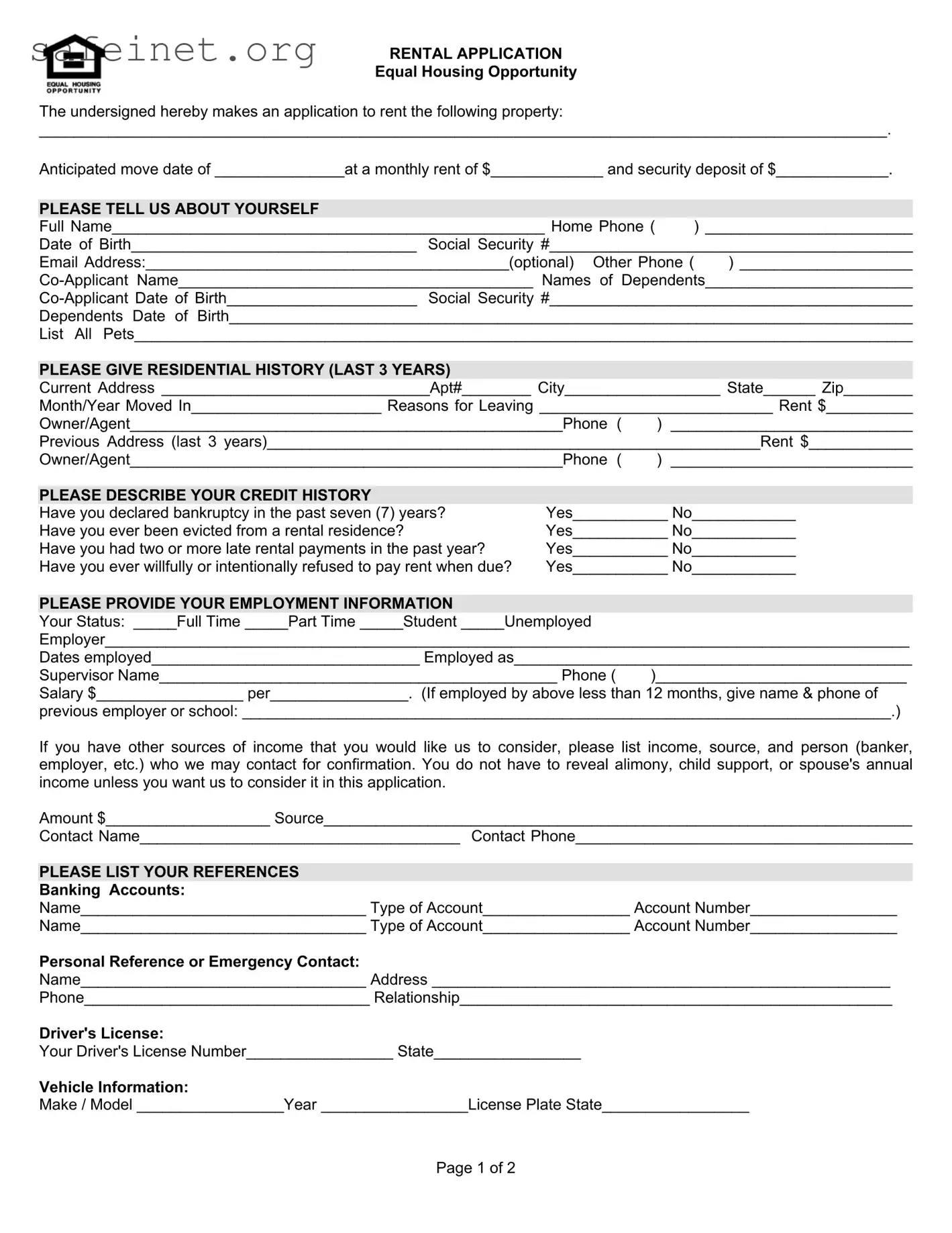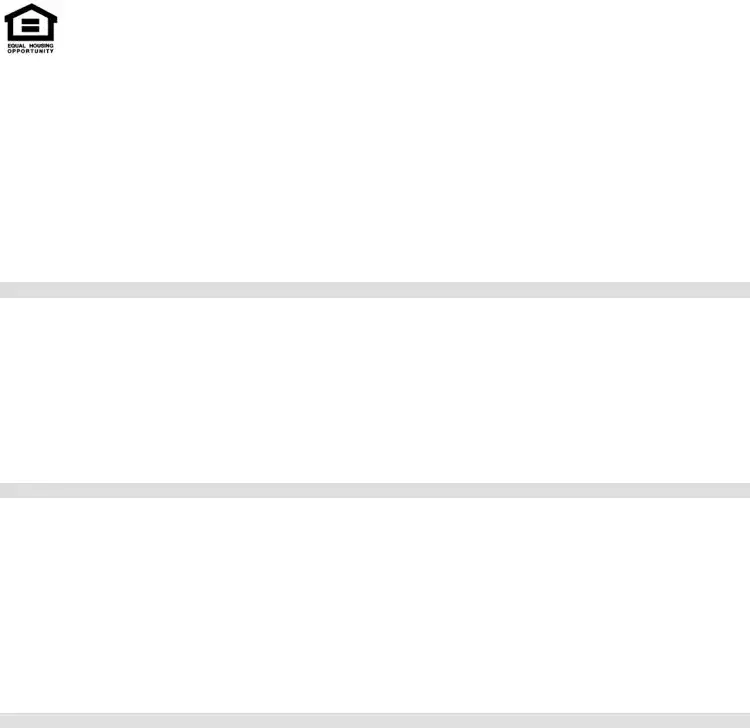RENTAL APPLICATION
Equal Housing Opportunity
The undersigned hereby makes an application to rent the following property:
__________________________________________________________________________________________________.
Anticipated move date of _______________at a monthly rent of $_____________ and security deposit of $_____________.
PLEASE TELL US ABOUT YOURSELF |
|
|
Full Name__________________________________________________ Home Phone ( |
) ________________________ |
Date of Birth_________________________________ Social Security #__________________________________________ |
Email Address:__________________________________________(optional) Other Phone ( |
) ____________________ |
Co-Applicant Name_________________________________________ Names of Dependents________________________
Co-Applicant Date of Birth______________________ Social Security #__________________________________________
Dependents Date of Birth_______________________________________________________________________________
List All Pets__________________________________________________________________________________________
PLEASE GIVE RESIDENTIAL HISTORY (LAST 3 YEARS)
Current Address _______________________________Apt#________ City__________________ State______ Zip________
Month/Year Moved In______________________ Reasons for Leaving ___________________________ Rent $__________
Owner/Agent__________________________________________________Phone ( ) ____________________________
Previous Address (last 3 years)_________________________________________________________Rent $____________
Owner/Agent__________________________________________________Phone ( |
) ____________________________ |
|
|
|
PLEASE DESCRIBE YOUR CREDIT HISTORY |
|
|
Have you declared bankruptcy in the past seven (7) years? |
Yes___________ No____________ |
Have you ever been evicted from a rental residence? |
Yes___________ No____________ |
Have you had two or more late rental payments in the past year? |
Yes___________ No____________ |
Have you ever willfully or intentionally refused to pay rent when due? |
Yes___________ No____________ |
PLEASE PROVIDE YOUR EMPLOYMENT INFORMATION
Your Status: _____Full Time _____Part Time _____Student _____Unemployed
Employer_____________________________________________________________________________________________
Dates employed_______________________________ Employed as______________________________________________
Supervisor Name______________________________________________ Phone ( )_____________________________
Salary $_________________ per________________. (If employed by above less than 12 months, give name & phone of
previous employer or school: ___________________________________________________________________________.)
If you have other sources of income that you would like us to consider, please list income, source, and person (banker, employer, etc.) who we may contact for confirmation. You do not have to reveal alimony, child support, or spouse's annual income unless you want us to consider it in this application.
Amount $___________________ Source____________________________________________________________________
Contact Name_____________________________________ Contact Phone_______________________________________
PLEASE LIST YOUR REFERENCES
Banking Accounts:
Name_________________________________ Type of Account_________________ Account Number_________________
Name_________________________________ Type of Account_________________ Account Number_________________
Personal Reference or Emergency Contact:
Name_________________________________ Address _____________________________________________________
Phone_________________________________ Relationship__________________________________________________
Driver's License:
Your Driver's License Number_________________ State_________________
Vehicle Information:
Make / Model _________________Year _________________License Plate State_________________


